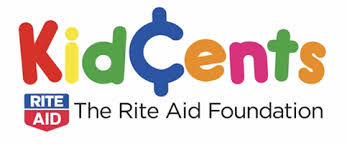Children and Trauma – This Really is Us
04/10/18
By Dr. Jeanette Scheid
While a recent episode of the hit TV show “This is Us” generated lots of buzz on social media and at the watercooler because of the sudden death of a lead character, another storyline touches close to home for many foster parents.
A current plot line on the show – which has earned praise for its portrayal of foster care and adoption – involves Randall and Beth considering adopting a girl named Deja from foster care. The child is struggling to cope with the effects of trauma that impact so many children who have been abused and neglected. As a result, Randall and Beth ask themselves whether their family has the strength to help Deja overcome childhood trauma.
Addressing childhood trauma is a priority for Michigan’s child welfare system and for mental health professionals. That includes helping families care for trauma-affected children.
As the agency that administers the state’s child welfare system, the Michigan Department of Health and Human Services understands the impact of childhood trauma on a child’s development and ability to function across his or her lifespan. If it’s not addressed effectively, trauma can cause children to act out at school or home. It can result in kids having low self-esteem and being unable to control their emotions or build positive relationships with others. That’s why MDHHS is implementing statewide trauma screening for youth within the child welfare system and a referral process to get them the services they need.
What does this mean for foster and adoptive parents?
No doubt many prospective foster or adoptive parents wonder whether they can handle the after effects of this type of trauma and help children succeed.
The good news is there’s plenty of information about how foster and adoptive parents can help children heal from trauma.
Some of it comes down to parenting skills that can help trauma-exposed children build resiliency. Create a safe place for children. Make sure kids know it’s OK to express their feelings and talk honestly about what they need. Tell them you’re there to listen, but don’t push them if they seem unwilling to share.
Demonstrate trustworthiness and transparency. Make it clear how your family handles certain situations. It’s important for children to know expectations – “At this time of day, this is what our family does.” “We expect everyone to use acceptable, respectful words.”
Pay attention to what the children are good at and give them the opportunity to succeed. If they’re skilled at sports or music or art, make sure they have the time to explore that talent and praise them for progress and accomplishments, no matter how small.
Build relationships at their school so you can work as a team to handle any academic or behavioral struggles. If a crisis occurs, you’ll know the school staff and they’ll know you, making it easier to address the situation.
Know that there is support available.
Michigan’s child welfare and mental health systems are working together to link children and families to trauma-informed assessments and services – in particular those that have a track record of success in helping kids who are experiencing mental health issues as a result of trauma. These services are individualized based on the needs of children and families.
For example, there’s trauma-focused cognitive behavioral therapy. And there are support partners who have experienced some of the same things you’re going through and can help you navigate through the system.
Many of these services may be covered by Medicaid and provided through local community mental health agencies. Foster care caseworkers are being trained to recognize and respond to trauma, so they can also help.
You also can find more resources on the MDHHS Building Michigan’s Trauma-Informed System for Children and Families website or go to www.michigan.gov/fosteringmentalhealth for additional information for parents and caregivers, children and health professionals about mental health issues that may affect children in foster care. Or ask your foster care worker for assistance.
As we watch and hope that Deja’s story has a happy ending, we can work together to help real-life children overcome the effects of trauma.
Dr. Jeanette Scheid is a medical consultant to the Michigan Department of Health and Human Services who participates in planning and execution of policy focused on improving the health and well-being of children served by the department. She is an associate professor in the Michigan State University Department of Psychiatry with expertise in mental health services for children – including youth who have experienced trauma.

















.png)
















































